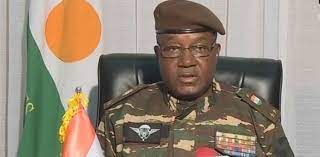EU suspends support and security cooperation with Niger after coup

Brussels; The European Union has suspended financial support and cooperation on security with Niger with immediate effect after the military coup there this week.
Announcing the sanctions, the EU’s foreign policy head, Josep Borrell, said: “In addition to the immediate cessation of budget support, all cooperation actions in the domain of security are suspended indefinitely with immediate effect.”
“The European Union does not recognise and will not recognise the authorities from the putsch in Niger,” Borrell added, saying Mohamed Bazoum “remains the only legitimate president of Niger” and calling for his immediate release.
Borrell said the EU was ready to support future decisions taken by west Africa’s regional bloc, “including the adoption of sanctions”.
The announcement will be a severe blow to Niger, which has been a major recipient of western aid, including from the EU and US, as an ally in the fight against jihadist insurgencies which have been destabilising the wider Sahel region.
The coup is the latest in a series in west Africa in which the military has also taken power in Mali, Burkina Faso and Guinea.
Gen Abdourahamane Tchiani, a 59-year-old soldier, appears to have moved against Bazoum as the president was preparing to dismiss him from his post and now appears to be holding Bazoum and his family hostage in the presidential residence.
The EU, the US and other countries have called for the unconditional release of Bazoum from detention and the restoration of democratic order in the country.
The EU allocated €503m (£432m) from its budget to improve governance, education and sustainable growth in Niger between 2021 and 2024, according to its website.
The military move against Bazoum has triggered a flurry of diplomatic contacts between Niger’s western allies, with the US secretary of state, Antony Blinken, calling the French foreign minister Catherine Colonna.
Blinken, on a visit to Australia, said the US financial support Niger relied on depended on the release of Bazoum and “the immediate restoration of the democratic order in Niger.”
“Our economic and security partnership with Niger – which is significant, hundreds of millions of dollars – depends on the continuation of the democratic governance and constitutional order that has been disrupted by the actions in the last few days,” Blinken said.
“So that assistance, that support, is in clear jeopardy as a result of these actions, which is another reason why they need to be immediately reversed.”
On Friday Blinken said he had spoken to Bazoum by phone, assuring the detained Nigerien president that the US would work to ensure full restoration of constitutional order.
On Friday Tchiani was declared head of state by Col Amadou Abdramane, who first announced the military takeover, and said the constitution and other institutions had been dissolved.
Western powers have scrambled to preserve a key ally in a region that has been destabilised by jihadist insurgencies, coups, and interventions by the Wagner mercenary group, as Russian flags appeared at prominent sites around Niger’s capital, Niamey.
The latest developments came as the head of the Wagner group, Yevgeny Prigozhin, who was recently embroiled in his own armed rebellion in Russia, appeared to weigh in, releasing an audio message on Friday saying: “What happened in Niger is nothing more than the struggle of the people of Niger against colonisers, who tried to impose their own rules of life.”
The message said “former colonisers are trying to keep the people of African countries in check” and “fill these countries with terrorists and various gangs, creating a colossal security crisis”.
Coup supporters have staged demonstrations in Niamey, some waving Russian flags and denouncing France, while video on social media showed what appeared to be several assaults on politicians.
Prigozhin’s comments come amid western concern over interventions by Wagner and the Kremlin in the Sahel region in recent years including in Mali as Wagner has eyed the region’s resources.
Niger is rich in uranium, and has also been used as a military base for western campaigns against regional jihadist groups.
On Thursday, several people chanted support for the Wagner group while waving Russian flags and later burning cars and ransacking the headquarters of the president’s political party.
“We’re fed up,” said Omar Issaka, one of the protesters. “Down with the French people. We’re going to collaborate with Russia now.”
Niger’s government has been seen by many in the international community as a bulwark against Islamist militancy in a vast arid region beset by security challenges. French and UN troops were in recent years forced to withdraw from neighbouring Mali, but France still has 1,500 soldiers in Niger. The overthrow of Bazoum could put the future of their deployment in doubt.
Bazoum, who was elected two years ago in Niger’s first peaceful, democratic transfer of power since it declared independence from France in 1960, has not yet resigned.





